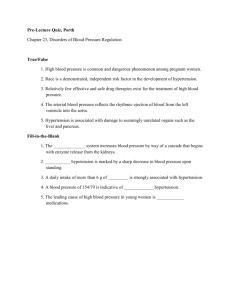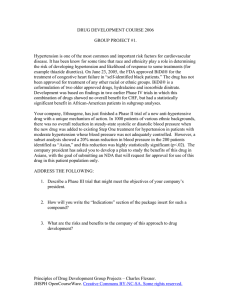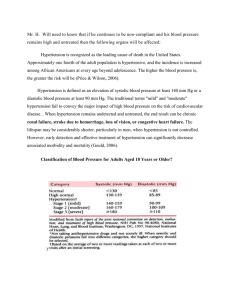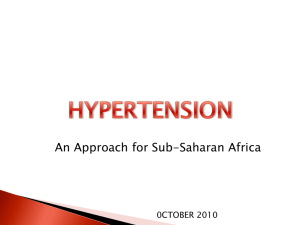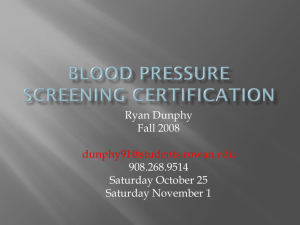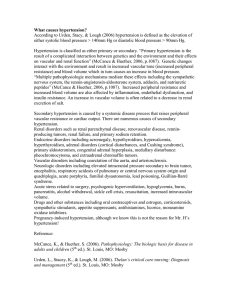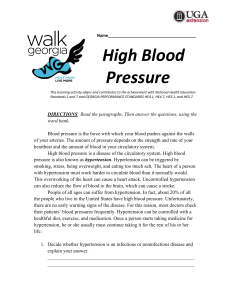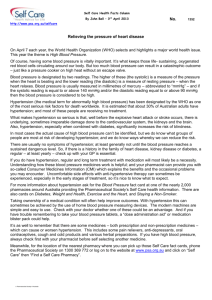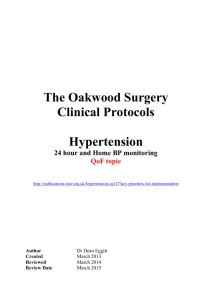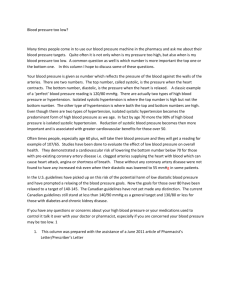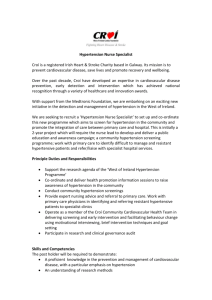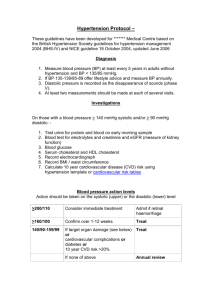BP - malawiupsom
advertisement
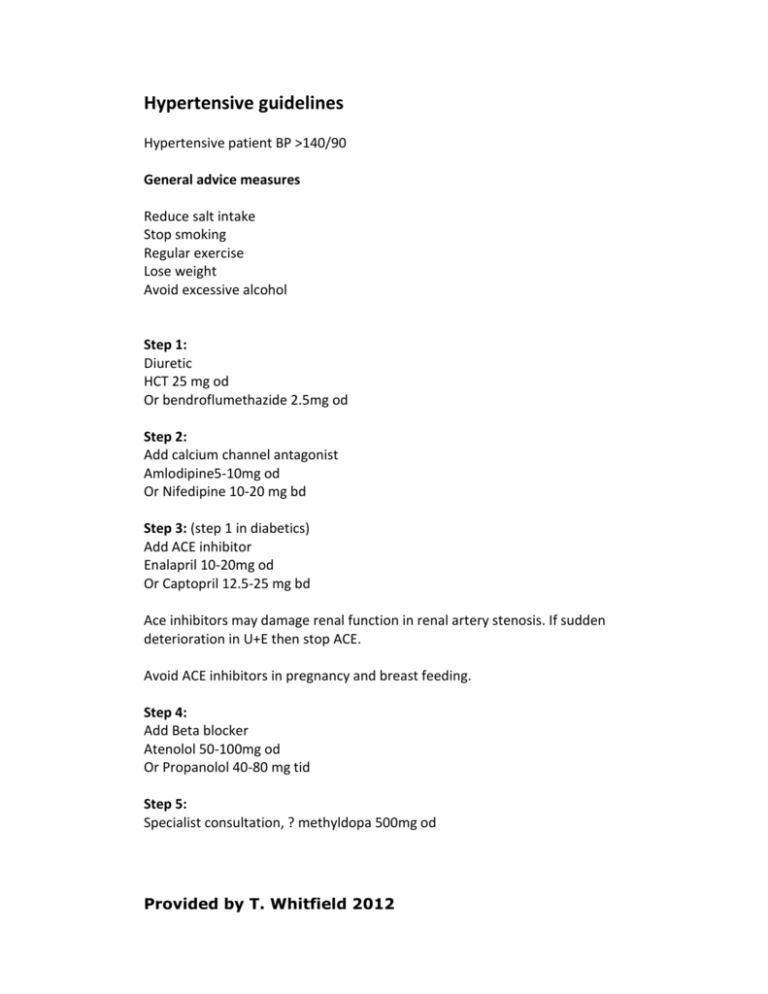
Hypertensive guidelines Hypertensive patient BP >140/90 General advice measures Reduce salt intake Stop smoking Regular exercise Lose weight Avoid excessive alcohol Step 1: Diuretic HCT 25 mg od Or bendroflumethazide 2.5mg od Step 2: Add calcium channel antagonist Amlodipine5-10mg od Or Nifedipine 10-20 mg bd Step 3: (step 1 in diabetics) Add ACE inhibitor Enalapril 10-20mg od Or Captopril 12.5-25 mg bd Ace inhibitors may damage renal function in renal artery stenosis. If sudden deterioration in U+E then stop ACE. Avoid ACE inhibitors in pregnancy and breast feeding. Step 4: Add Beta blocker Atenolol 50-100mg od Or Propanolol 40-80 mg tid Step 5: Specialist consultation, ? methyldopa 500mg od Provided by T. Whitfield 2012 Emergency Hypertension Emergency hypertension is defined as hypertension causing blindness, encephalopathy or convulsions. It usually has a diastolic blood pressure > 120 mg/Hg. The blood pressure should be brought down gradually aiming for diastolic BP 100mg/Hg or lowered by 20-30mg/Hg in the first 24 hours which ever invlolves lowering the BP the least. Too fast lowering of the blood pressure can affect cerebral blood flow. In emergency severe hypertension use hyralazine 5-10mg IV and recheck 1-2 hours later repeat dosing as necessary. Secondary hypertension The majority of hypertension is classified as essential hypertension of no known cause. If a younger patient presents with hypertension it may be appropriate to screen for a secondary cause. Renal disease: glomerulonephritis, renal vascular disease and polycystic kidneys are all causes of hypertension. Endocrine diseases such as cushings disease and conns syndrome can also cause hypertension. Discuss this with seniors if suspected. Provided by T. Whitfield 2012
